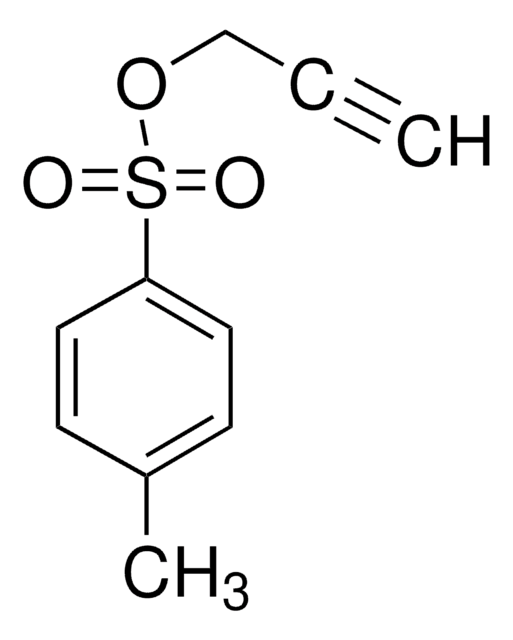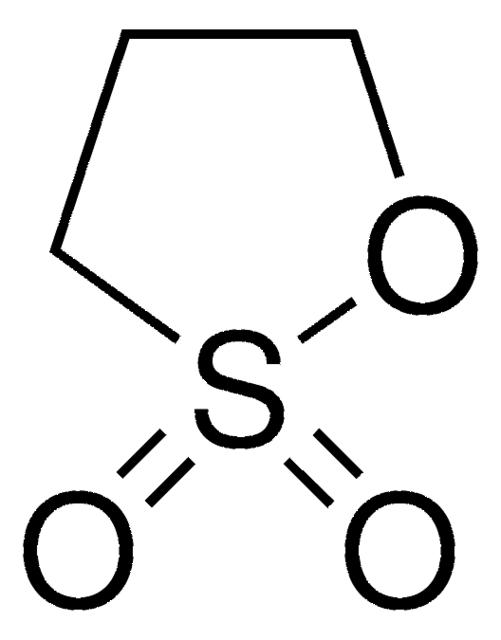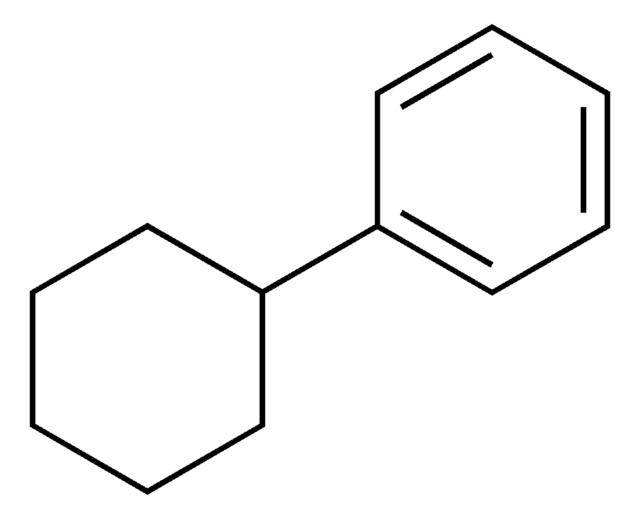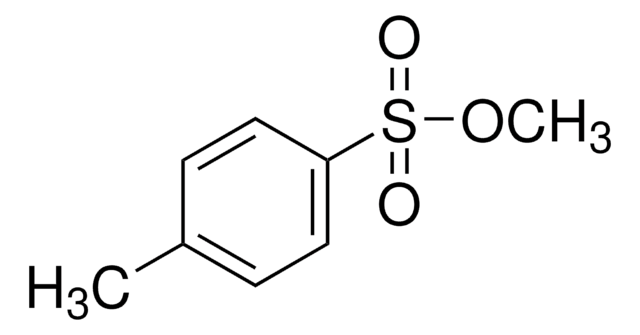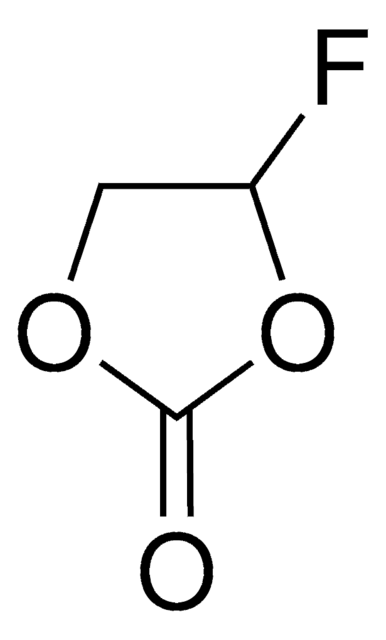809993
2-Propynyl methanesulfonate
battery grade, ≥99.5%, acid <200 ppm, H2O <100 ppm
Synonym(s):
2-Propinyl methanesulfonate, Methanesulfonic acid
About This Item
Recommended Products
grade
battery grade
Quality Level
description
Acid content: <200 ppm
Moisture: <100 ppm
Assay
≥99.5%
form
liquid
impurities
≤100 ppm H2O
≤200 ppm acid
bp
167 °C (lit.)
mp
17-19 °C (lit.)
density
1.481 g/cm3
application(s)
battery manufacturing
SMILES string
CS(OCC#C)(=O)=O
InChI
1S/C4H6O3S/c1-3-4-7-8(2,5)6/h1H,4H2,2H3
InChI key
OWAHJGWVERXJMI-UHFFFAOYSA-N
Application
Preparation Note
- These additives have low water content (less than 100 ppm), please handle under inert and moisture free environment (glove box).
- Keep containers tightly closed.
- Keep away from heat and ignition sources.
- Store in a cool and dry place.
- Avoid storing together with oxidizers.
Legal Information
related product
Signal Word
Danger
Hazard Statements
Precautionary Statements
Hazard Classifications
Acute Tox. 3 Oral - Skin Irrit. 2
Storage Class Code
6.1C - Combustible acute toxic Cat.3 / toxic compounds or compounds which causing chronic effects
WGK
WGK 3
Flash Point(F)
>230.0 °F
Flash Point(C)
> 110 °C
Regulatory Listings
Regulatory Listings are mainly provided for chemical products. Only limited information can be provided here for non-chemical products. No entry means none of the components are listed. It is the user’s obligation to ensure the safe and legal use of the product.
JAN Code
809993-500G:
809993-BULK:
809993-25G:
809993-VAR:
Choose from one of the most recent versions:
Certificates of Analysis (COA)
Don't see the Right Version?
If you require a particular version, you can look up a specific certificate by the Lot or Batch number.
Already Own This Product?
Find documentation for the products that you have recently purchased in the Document Library.
Customers Also Viewed
Articles
Experts discuss challenges and production processes of nickel-rich layered oxide cathode materials in energy storage systems.
Due to the adverse impact of the continued use of fossil fuels on the earth’s environment and climate, researchers have been asked to develop new approaches for producing power using renewable sources like wind and solar energy
Ionic liquid electrolytes explored for rechargeable batteries' advancement; future IL development discussed.
Our team of scientists has experience in all areas of research including Life Science, Material Science, Chemical Synthesis, Chromatography, Analytical and many others.
Contact Technical Service